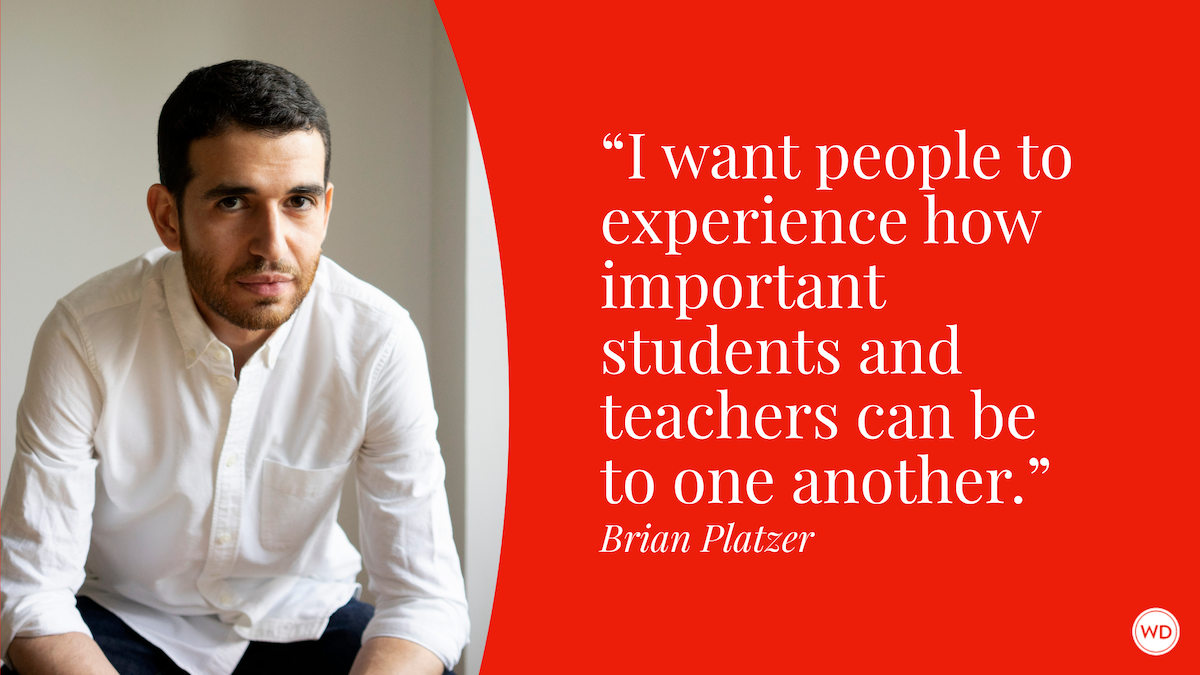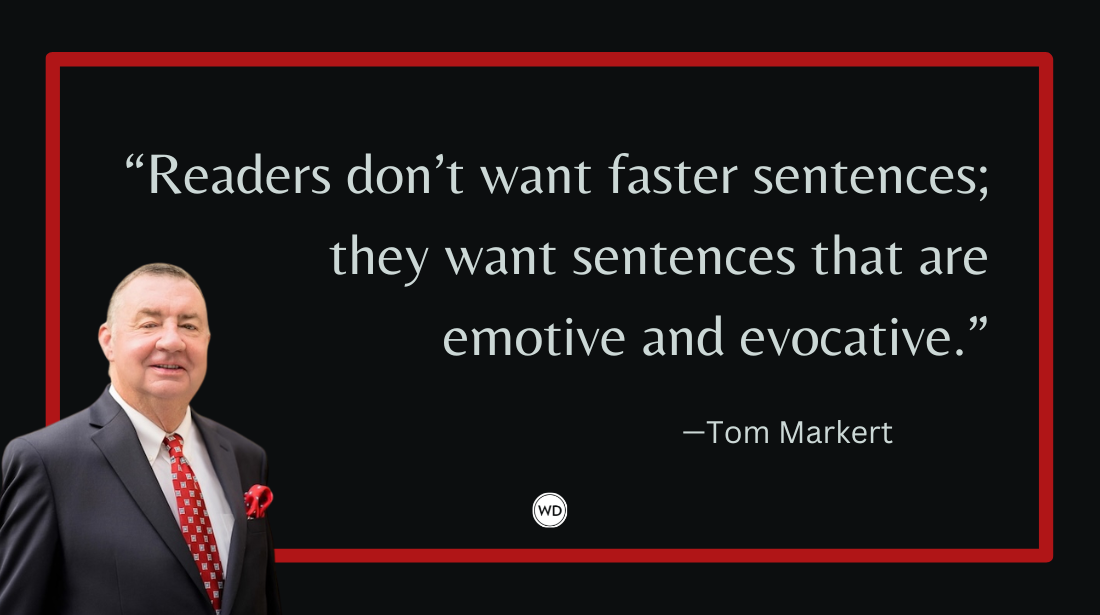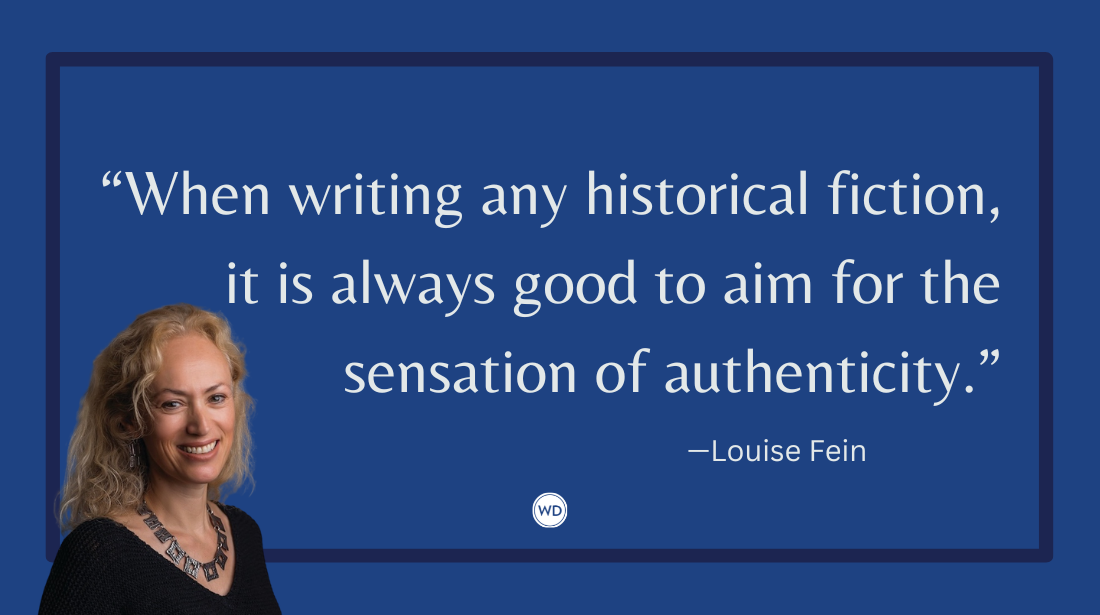Writer’s Digest 94th Annual Competition Genre Short Story First Place Winner: “Poison Pills”
Congratulations to GK Daffu, first-place winner in the Genre Short Story category of the 94th Annual Writer’s Digest Writing Competition. Here’s their winning story, “Poison Pill.”
Congratulations to GK Daffu, first-place winner in the Genre Short Story category of the 94th Annual Writer’s Digest Writing Competition. Here’s their winning story, “Poison Pills.”
Poison Pills
by GK Daffu
People took the pills to get better. None of them knew they were part of an experiment.
8:57 AM
FDA Special Agent Lexi Knox adjusted her blazer as she stepped into the brightly lit conference room at the FDA’s Office of Criminal Investigations field office in South Boston. Papers cluttered the table, and the scent of burnt coffee and whiteboard markers filled the room—the telltale signs of long shifts and sleepless nights. A whiteboard on the far wall was covered in frantic scrawl with chemical structures, timelines, and a growing list of victims. The air in the room was thick with the weight of unanswered questions.
As a special agent with the FDA’s OCI, she was charged with protecting the public from criminal activity involving health care products. The OCI serves as the FDA’s law enforcement arm—covert, relentless, and built for the kind of cases where warnings and recalls came too late.
Over the years, she had led high-stakes undercover operations and surveillance efforts targeting individuals and organizations behind some of the agency’s most serious violations. From counterfeit generic drug rings to fraudulent schemes involving unproven cures, and all sorts of contamination cover-ups, such as with microbes and heavy metals.
She took a seat across from Dr. Louis Reinhart, the agency’s chief toxicologist. He looked like he hadn’t slept in days. His normally sharp features looked hollowed out, exhaustion carving deep lines into his face. A half-empty cup of coffee sat beside him, long gone cold. He was thumbing through a stack of autopsy reports, but the one on top had his full attention.
Without looking up, he exhaled and slid a file across the table. “We’ve got another one,” he said, his voice low, drained.
Lexi reached for the folder, the weight of it settling into her palms like a loaded gun. She flipped it open. Inside was a forensic report detailing the sudden death of Gregory Henshaw, a forty-six-year-old male, previously healthy except for mild hypertension. He had collapsed in his kitchen barely an hour after taking his prescribed Lypetra, a widely used cholesterol medication.
Her stomach knotted as she scanned the toxicology results. Dioxin. A toxic compound known to be a common environmental pollutant, but lethal at high levels.
She exhaled sharply. “That’s the twelfth case this month.”
Reinhart nodded grimly. A shadow passed over his face. “And that’s just what we’ve caught.” He tapped the table for emphasis. “How many others slipped through the cracks? How many were written off as heart attacks, strokes, sudden cardiac arrest?”
Lexi’s fingers pinched around the edges of the file. These deaths weren’t isolated incidents. Every case followed the same eerie pattern: middle-aged or older patients, no history of major illness, sudden, inexplicable collapse. And every single one had been taking Lypetra.
And yet, Vascora Pharmaceuticals, the manufacturer, had reported no contamination, no recalls, no anomalies. Their internal quality control records were clean. The preliminary tests of their pills—also clean.
Lexi shut the folder and fixed Reinhart with a piercing stare. “I need to see the supply chain reports.”
Reinhart hesitated. “Lexi—”
She leaned forward, her voice a low warning. “Every single distributor, every third-party supplier, every subcontractor handling raw materials. Someone’s cutting corners for the sake of profit.”
The older man sighed, rubbing his temple. “You think it’s contamination?”
Lexi’s jaw tightened. She tapped the autopsy report. “Twelve unexplained deaths. The same drug, the same toxin. I don’t believe in coincidences, Louis. Not twelve times.” Lexi’s pulse drummed at her temples. “We need answers before the bodies pile up and the morgues overflow with unexplained deaths.”
Silence stretched between them, heavy with implications. Somewhere down the hall, a phone rang and went unanswered.
11:45 AM
The Vascora Pharmaceuticals headquarters loomed over downtown Boston, its glass façade gleaming under the bright January winter sun. A single-asset pharmaceutical company, Vascora had a large pipeline of investigational drugs, but Lypetra was their only product on the market. It was a two-billion-dollar-a-year drug, and the company was doing just fine.
Lexi adjusted the FDA badge clipped to her belt as she entered the building. The lobby was a seamless expansion of polished white, high-gloss marble, exuding an air of clinical precision and modern sophistication. A space designed to inspire confidence and trust. A receptionist greeted her with forced politeness and directed her to the executive floor. They were expecting her.
She was met by Henry Caldwell, Vascora’s VP of Compliance, a stocky man with a politician’s smile and an accountant’s demeanor, his sharp eyes assessing her with the practiced ease of someone used to deflecting scrutiny. His handshake was firm, but his palm was damp—a small but telling detail Lexi filed away.
“Agent Knox.” He greeted her with a practiced smile. “I trust this is just a routine inquiry?”
“It’s about Lypetra manufacturing.”
“I assure you, Agent Knox,” Caldwell said, ushering her into his office, “Lypetra undergoes rigorous quality control. We have the safest manufacturing processes in the industry.”
Lexi dropped the autopsy reports on his desk. “Then explain this.”
Caldwell’s smile faltered. He flipped through the pages, his expression darkening. “I—I don’t understand. These deaths—”
“They all had Lypetra in their system. And they all had traces of dioxin.”
“That’s impossible.” Caldwell shook his head. “Our raw ingredients are vetted. Our facilities are state-of-the-art. There’s no way—”
“Somewhere along the line, something is going wrong and people are dying from your drug,” she said, cutting in with her voice rising. “And unless you want Vascora to be the face of a corporate manslaughter case, I suggest you start talking.”
Caldwell hesitated, running a hand over his face. “We have a few new suppliers. We switched recently and source some of our inactive binders and fillers from them. They’re all overseas, but—”
“But you don’t test their shipments beyond routine spot checks, do you?” Caldwell swallowed hard. “No.”
Lexi stood. “Then I suggest you get me everything you have on these new overseas suppliers.”
2:10 PM
Lexi sat crouched over her desk in the cramped, windowless office that held the musty scent of old paper and file folders. Supplier records lay open in disjointed piles—yellowing invoices, faded shipping manifests, red-stamped customs documents, and tightly spaced lab reports filled with chemical notations and trace contamination levels.
She ran a tired hand through her hair, then pressed her fingers to her temple, where a dull ache had been building since midday. A half-eaten sandwich and sticky notes scribbled in
shorthand littered her desk. She flicked a red pen between her fingers like a pendulum, marking time between each unanswered question. Every document she touched added to the picture, and the picture was damning. There were discrepancies in lot numbers. Duplicate entries in the distribution logs. A shipment that had cleared customs in under twelve hours. Far too fast.
She leaned back for a moment, letting the papers slide under her palm like puzzle pieces rearranging themselves.
Zenteva Labs, based in Shenzhen, China, had provided Vascora with pharmaceutical fillers—substances used to hold pills together. The latest shipment had arrived six weeks ago, a seemingly routine delivery. But the timing was damning. Only a few weeks before the first known fatality, which provided the right amount of time for the fillers to be incorporated and to get into circulation.
Coincidence? She doubted it.
The office was cold. She reached for her mug absently, then stopped short when her phone buzzed against the desk. She grabbed it, and her heart pounded when she saw the caller ID.
Reinhart
She answered. “Tell me you have something.”
“You’re not going to like this,” he said, his voice clipped. “I ran an extended analysis on the dioxin traces from the victims. It’s industrial-grade, the kind used in pesticide manufacturing.”
Lexi’s stomach twisted. “Pesticides? Why the hell would that be in a medication?”
She heard him clear his throat on the other end of the line, as if bracing himself. “That’s the thing. It shouldn’t be. And it gets worse.” He paused. “I traced the specific chemical markers. This batch has a unique composition, like a fingerprint. It matches a banned factory that was falsifying test results and manufacturing data to meet U.S. regulatory standards.”
Lexi gripped the edge of her desk. She already knew where this was going, but she had to hear him say it.
“Guess who owned it?”
A bitter sense of inevitability washed over her. “Zenteva Labs.” “Bingo.”
Lexi closed her eyes briefly, rage overtaking her exhaustion. “And people are dying because of it.”
“Yeah.” Reinhart sighed. “Look, Lexi, If Zenteva is behind this, we’re not looking at sloppy corporate negligence. We’re staring down cold-blooded intent. This isn’t their first offense. They’ve been caught falsifying data multiple times, banned from doing business in the
U.S. for it. And yet, someone at Vascora made the call to partner with them, anyway. A factory that routinely fakes records, fails inspection after inspection. No one should ever have trusted them. That means Zenteva found a backdoor into the market by using Vascora as their willing accomplice. And someone at Vascora knew exactly what they were doing when they pushed this poison into circulation. They gambled with lives just to save a few bucks.”
She shoved back from her desk, grabbing her coat. “And I’m going to find out who.” “Be careful,” Reinhart warned. “If they know we’re onto them—”
“They’ll try to bury the evidence,” she said. “I know.”
Her mind was already racing ahead. If Zenteva had gone to such lengths to cover their tracks, exposing them wouldn’t just be dangerous—it would make her a target.
3:35 PM
Lexi’s next stop was the FDA’s regional forensic lab. It was an unassuming concrete building on the outside, but inside, it thrummed with urgency. She swiped her badge, pushed open the heavy lab door. The sterile bite of formaldehyde and industrial-strength bleach immediately hit her. The air stung her nostrils, clinging to her clothes like evidence. Inside, the space was a hive of controlled chaos.
Rows of stainless-steel tables stretched across the room, crowded with pill bottles in various stages of dissection. Some cracked open, others ground into powder. High-performance liquid chromatography machines blinked steadily beside mass spectrometers, their screens alive with data streams. Technicians in disposable white lab coats and blue nitrile gloves moved with silent focus, heads bent over their workstations, scanning molecular fingerprints and comparing chemical signatures.
Near the back, a wall-sized monitor displayed a growing spreadsheet of medications flagged for irregularities. Lypetra topped the list, but now half a dozen generics appeared below it, with red-highlighted rows indicating the contamination wasn’t isolated. It was spreading across supply chains like a cancer.
Dr. Anika Patel, the lead forensic analyst, barely glanced up as Lexi approached. She was hunched over a microscope, eyes sharp with focus, her face drawn with something far graver than mere exhaustion.
“I hope you have something for me,” Lexi said, her voice taut.
Patel straightened, pulling off her gloves. “We started with Lypetra,” she said, grabbing a printout from the table. “We found contamination in one bottle from a pharmacy in Baltimore.” She handed over the report.
Lexi scanned the data, her pulse spiking. “This one contains lethal levels of dioxin.”
“Right,” Patel said, exhaling sharply. “But then I widened the scope. I ran tests on random samples of other medications. Some widely prescribed ones for cancer, diabetes, respiratory diseases. I figured if someone had access to one supply chain, they might have access to others.”
Lexi’s fingers tightened on the paper. “And?”
Patel grabbed another stack of reports, her expression grim. “We found dioxin in multiple samples. Not just Lypetra. A metformin batch for diabetes from a hospital in Chicago. Steroids used for chronic pain patients in Houston. A chemotherapy drug in Los Angeles.”
Lexi’s stomach dropped. “This isn’t a targeted attack on one drug. It’s systemic.”
Patel nodded. “And it’s deliberate. The way the contamination appears, the distribution— it’s too precise to be a fluke.”
Lexi’s mind went into overdrive. This was bigger than corporate sabotage or a grudge.
This was an attack on the most vulnerable. Patients relying on life-saving medication. If the
dioxin contamination was accidental, why would Zenteva go to such great lengths to cover their tracks? On the other hand, if dioxin contamination was deliberate, what would Zenteva have to gain? It wasn’t clear to her.
Her phone buzzed. She barely glanced at it before the words on the screen sent a jolt through her.
You’re getting too close. Walk away.
Lexi’s breath caught. She lifted her gaze to Patel, her voice barely above a whisper. “Someone knows we’re onto them.”
4:30 PM
On the drive back to the office, Lexi’s phone buzzed with a message from a different unknown number.
I have information for you. About Zenteva. We need to meet.
Staring at the message, she scrunched her eyebrows. She had plenty of sources, but none who reached out like this. She pulled the car over.
Who is this?
Three dots appeared, then vanished. A minute passed before another message came through.
Someone who wants the truth out.
She drummed her fingers on the steering wheel. Vague, but not unusual. She’d played this game before.
What’s in it for you?
Another pause.
I can’t be a part of this anymore. I have to help fix this.
Lexi exhaled slowly. The wording was careful, but revealing. Whoever this was, they weren’t some whistleblower looking for five minutes of fame. They had skin in the game.
Where and when?
She clenched her jaw.
Bunker Hill Monument. 7 PM. Come alone.
Public enough not to be a death trap but secluded enough to be risky. Exactly the kind of place these meetings always seemed to happen.
I’ll be there.
A final message flashed across her screen before the number disappeared from her call log entirely.
Don’t be late.
She set the phone down, staring at it for a beat before getting back on the road. Whatever this was, it was big. And she was going to find out just how deep it went.
6:40 PM
Lexi gripped the steering wheel and pulled into a parking spot near the Bunker Hill Monument. The historic site loomed against the darkened sky, its tall granite tower casting long shadows across the frostbitten ground.
She scanned the area as she stepped out of the car, her boots scraping against the frozen gravel. The air was crisp, laced with the faint scent of snow and the distant sounds of traffic from the bridge beyond. The park was eerily empty for a winter evening. No joggers and no tourists braving the cold. Only the stillness of the night and the distant creak of bare tree branches in the wind. Exactly the kind of quiet she had expected.
She wrapped her coat tighter around her and made her way toward the Prescott Statue, a bronze figure that stood resolutely atop its stone pedestal in front of the Bunker Hill Monument. The informant had chosen this spot deliberately. More open space, fewer blind corners, and a clear view of anyone approaching.
Lexi exhaled slowly, forcing herself to stay calm as she checked her watch: 6:57 PM. Three minutes early.
Her gaze swept over the monument grounds. A flickering streetlamp buzzed near the walkway. A car rumbled past in the distance before disappearing down the hill. Other than that, silence.
She shifted her stance, her muscles tense beneath the layers under her coat. Had the warning earlier been legitimate? Or was it an intimidation tactic meant to scare her off?
Then a sound.
A faint crunch of footsteps on frozen grass.
She didn’t turn immediately. Instead, her hand tightened on her firearm as she adjusted her position, angling herself to see in her peripheral vision. A figure emerged from the darkness near the pathway. A man, bundled in a hooded coat, hands deep in his pockets. He moved with deliberate steps, cautious, head slightly ducked as if reluctant to be recognized.
“Agent Knox?”
Lexi nodded, keeping her posture neutral. “You have information for me?”
The man hesitated, scanning the darkened surroundings. His breath came quick, misting in the chilly night air. “I don’t have much time. Zenteva Labs…there’s something bigger happening. You need to know. The dioxin…it wasn’t an accident. They knew. They’ve been testing it for months.”
“Testing it? On who?”
“Patients. Unwitting consumers. They needed data before selling to the highest bidder.”
He reached into his jacket and pulled out a battered manila folder. She jumped at his sudden movement. He thrusted it toward her. She took it and flipped it open just enough to catch a glimpse of the contents: medical reports with names, dates, toxin levels. Her pulse quickened.
“They’ve been collecting data from hospitals and clinics—mostly places that serve vulnerable populations. People with preexisting conditions, those who wouldn’t question why they were getting sicker.” His voice was low, urgent. He looked from side to side. “They manipulated research reports, slipped test compounds into medications, even the water supply in
some cases. Zenteva Labs is mapping long-term exposure effects of dioxin so they can refine the formula.”
Lexi’s grasp on the folder tightened. “Refine it for what?”
The man exhaled sharply and shook his head. “They want to make dioxin more predictable. More… weaponizable. A controlled poison. Something that can weaken, incapacitate over time, without immediate detection. They’re looking for the perfect dose. Enough to cause irreversible damage, but slow enough that it won’t raise alarm bells.”
Her blood ran cold. “Who are they selling this to?”
His eyes darted past her again. His hands twitched at his sides, as if he wanted to run. “Foreign governments. Private interests. Anyone willing to pay. And they’ve already started negotiations.”
She swallowed down the rising fury in her throat. This was worse than she had imagined. “Why are you telling me this?”
The man’s jaw stiffened. “Because I was part of it. I helped collect the data. I watched people suffer, and I—I can’t do it anymore.” His voice cracked. “You need to stop them before they take this any further.”
Before she could respond, the distant screech of tires echoed in the night. Headlights flooded them. The informant’s eyes went wide.
“They found me,” he whispered. A gunshot rang out.
Lexi dove behind the monument as the echo of the gunshot ricocheted through the night air. The sharp tang of burning rubber filled the air as the man crumpled to the ground, his breath coming in ragged gasps. Blood pooled beneath him and gleamed eerily under the full moon.
Heart pounding, she readied her firearm, her fingers tightening around the grip as she scanned the surroundings for the shooter. Another gunshot shattered the silence, striking the pavement near her foot, sending shards of concrete into the air. She ducked lower, pressing herself against the cool stone of the monument.
A second set of tires screeched in the distance. Another vehicle? A getaway car? She risked a glance around the monument and caught the fleeting outline of a figure in dark clothing disappearing into the streets. Whoever they were, they were fast, and they didn’t want witnesses.
Cursing, she ran to the dying man.
“Who did this?” she asked, pressing her hand against his wound. His lips trembled. “Zenteva… they… they own everyone.”
Then he went still.
Lexi called for backup, but by the time agents arrived, the shooter was long gone. The man’s final warning hanging heavy in her mind: Zenteva owns everyone.
The Next Day
Lexi confronted Caldwell again, but this time, she wasn’t alone. The full weight of the FDA, FBI, and Department of Justice bore down on him. Federal agents had raided Vascora’s
executive offices early that morning, hauling away computers, internal records, and entire server backups.
Now, inside a windowless interrogation room, the charge in the air was heavy and electric. The scent of sweat and stale coffee clinging to the walls. The fluorescent lights cast a harsh glare over Caldwell’s already pale face.
He sat hunched at the metal table, hands twitching in his lap. His tailored charcoal-gray suit, which had once radiated boardroom confidence, now looked wrinkled, the fabric damp with nervous sweat. His wedding ring clinked against the tabletop as his fingers fidgeted in frantic, repetitive patterns.
Caldwell tried to keep his composure, but the walls were closing in. His voice cracked as he stammered out excuses of misunderstandings, clerical errors, and subordinates.
Lexi slammed a thick binder onto the table, the impact sharp and final. The sound cut through his excuses like a blade. Inside the folder, a tall stack of pages consisting of emails, financial records, and internal memos. Every single document was a nail in his corporate coffin.
She leaned in, her eyes narrowing like a predator closing in on its kill. “You knew.”
Caldwell flinched.
Her voice was low, seething—measured not in volume, but in pure, unrelenting fury. “People were dying, and you still pushed this through.”
A muscle twitched in Caldwell’s jaw. His gaze darted toward the one-way mirror as if unseen Vascora lawyers stood on the other side, ready to sweep in and save him. There was no one coming.
His shoulders slumped, the last remnants of corporate confidence draining from his posture.
Lexi flipped through pages of damning evidence, each document stripping away his last defense. Internal memos detailing the first contamination reports from their supplier, Zenteva Labs. Executive emails discussing how a full recall would cost “hundreds of millions” and how it was “better to mitigate than panic.” A financial projection showing how lawsuits were calculated into the budget, including deaths, settlements, and all.
Then, the final piece of evidence.
An email dated two weeks before the first recorded death.
LOSSES FROM A RECALL FAR OUTWEIGH THE RISK OF LIABILITY.
Silence thickened the room.
Lexi’s fingers clenched the edge of the table. There it was. Proof of premeditation. Proof of corporate greed taken to lethal extremes. Proof that Vascora had willingly gambled with people’s lives.
Her blood boiled. How many lives could have been saved? How many deaths had been tallied in spreadsheets before they ever happened?
She exhaled sharply, steadying her voice. “You signed off on this.”
Caldwell shook his head rapidly, his breath hitching. “No. I—I was just following protocol.”
“Protocol?” She snapped. “Your protocol was gambling with human lives.” This wasn’t just corporate negligence. This was premeditated. This was murder.
A harsh knock on the door. The metal handle clicked, and DOJ Prosecutor Ethan Landry stepped in, a thick manila folder tucked under his arm.
Landry was the shark circling the tank, his tone calm, methodical. “Mr. Caldwell, I’m here to make things crystal clear for you.”
He slid the folder open, revealing the official DOJ indictment paperwork—stamped, signed, and ready to be filed.
“You and your colleagues are looking at multiple violations under the Federal Food, Drug, and Cosmetic Act.”
Landry ticked off each violation on his fingers, his voice cold and efficient. “The illegal distribution of adulterated drugs. Felony misbranding and concealment of contamination. Wire fraud, conspiracy to commit fraud, and obstruction of justice. Manslaughter charges for every documented fatality.”
Caldwell stiffened, his face ghostly pale. Landry leaned in, voice a lethal whisper. “You’re looking at life in prison.”
A shuddering exhale rattled from Caldwell’s lips. His gaze darted toward Lexi again, desperate.
“I—I didn’t know about the extent—” Lexi’s voice cut through his stammering. “Yes, you did.”
Caldwell swallowed hard, his lips trembling. His fingers dug into his lap, clinging to the last shreds of his denial.
Then, the final blow.
Landry pulled out one last document. A plea deal.
“Tell us everything about Zenteva,” he said, tapping the paper, “and we’ll talk.”
Caldwell’s lips parted. His throat bobbed as he swallowed, his hands shaking so violently now that he had to clench them into fists.
Then—finally—he spoke.









